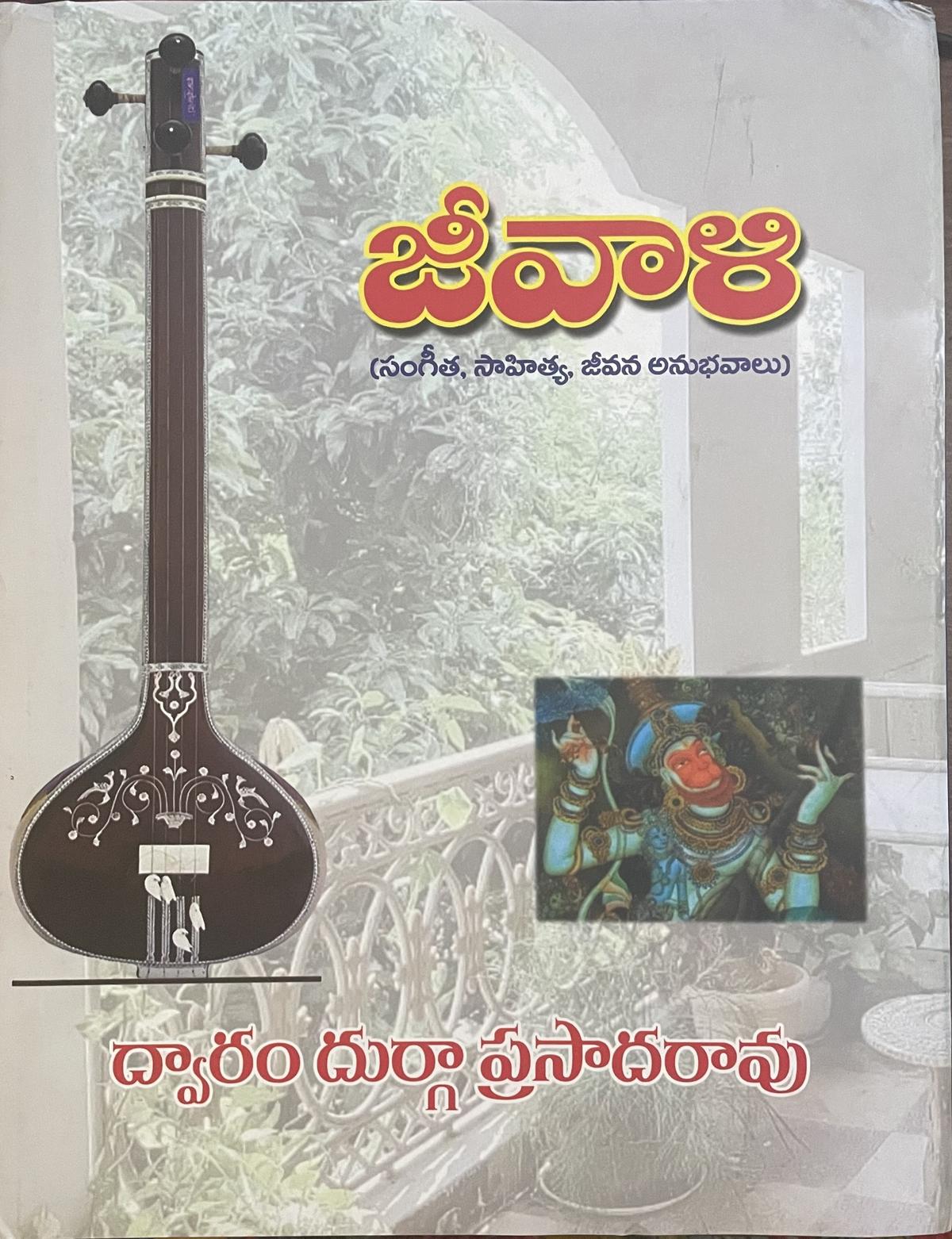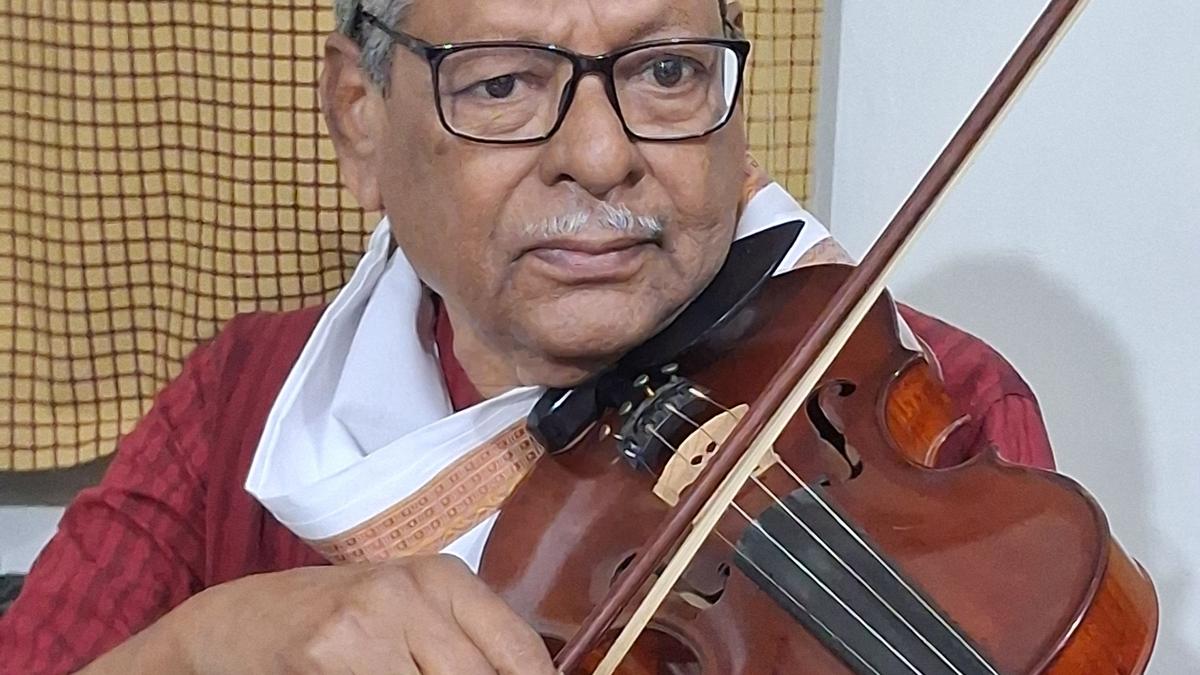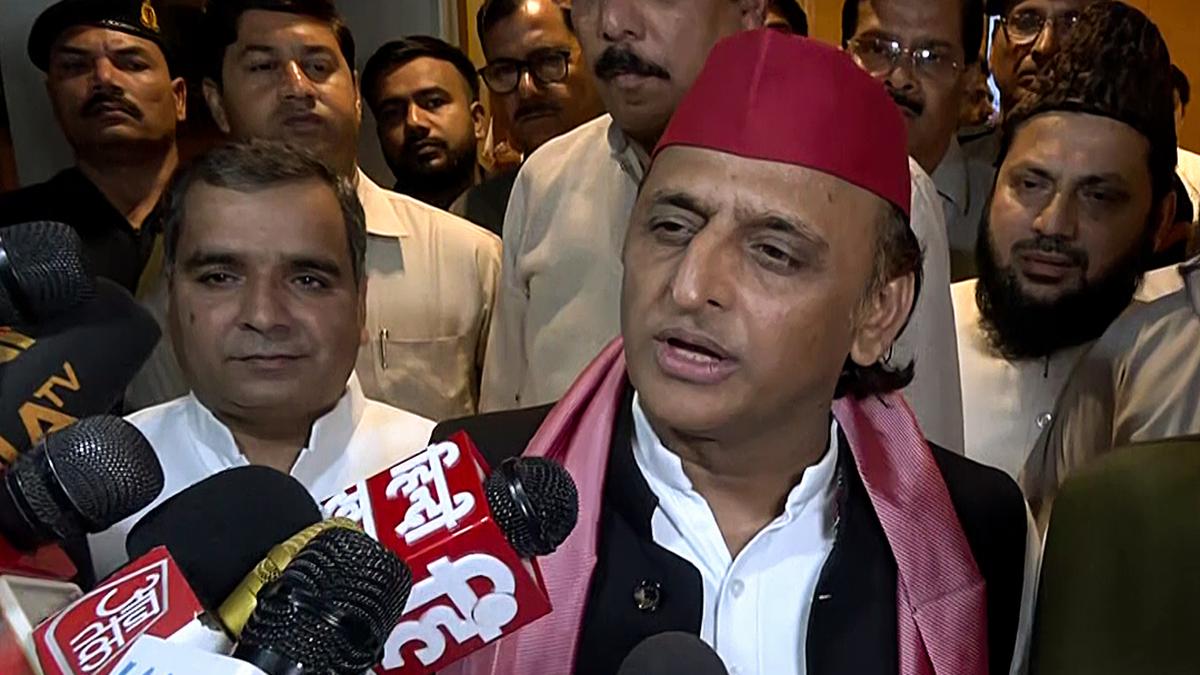
Violinist and authors Dwaram Durga Prasadarao
| Photo Credit: Special Arrangement
“The legacy of the Dwaram family doesn’t belong to us alone; it belongs to every student trained under the stalwarts of this tradition,” says violinist Dwaram Durga Prasadrao, with a quiet grace.
Our institution has trained several students, many of whom lived with us in the traditional gurukula style. In fact, many from outside the family are the true carriers of the Dwaram bani. We lived together and learned together. That’s the beauty of that era,” he adds.
It is this spirit of sharing credit, honour and memory that runs through the pages of his recently launched book Jeevaali – Sangeetha, Sahitya, Jeevana Anubhavaalu (NK Publications)in Telugu.
Speaking over phone from Vizianagaram, 82-year-old Prasadarao comes across as a rare blend of literary depth and musical mastery. He’s a multi-faceted artiste, who is also a sculptor and painter. The cover photo illustration of the book is credited to him as well.

Jeevaali – Sangeetha, Sahitya, Jeevana Anubhavaalu is a blend of literary depth and musical mastery
| Photo Credit:
Special Arrangement
All in the title
The title of his new book, Jeevaali…, is as layered as the man himself. “The word came to me only towards the end of the writing process,” says Prasadarao, describing a moment of insight that ties together his musical and philosophical worldview. “In the tambura, ‘jeevaali’ refers to a small cotton thread, placed between the string and the bridge, a minor one, but essential. It creates partial vibrations or harmonics, which give music its emotional colour. That’s the life within sound,” he explains. Once used in the veena too — though no longer in practice — this subtle component, he says, symbolises the hidden elements that make music and life resonate. The term also carries a Sanskrit connotation; jeeva-ali, meaning a progression of living beings.
The book is neither a conventional autobiography nor an academic treatise. Instead, it unfolds as a personal collage of essays, anecdotes, and reflections — some philosophical, others humorous, and many tinged with nostalgia. The book features over 80 individuals who have, in some way, shaped his journey. While he naturally writes with pride about his lineage — his father Dwaram Narsinga Rao, grandfather Dwaram Venkata Krishnayya, and grand-uncle, the legendary violinist Dwaram Venkataswamy Naidu — he speaks of fellow musicians, colleagues and students with the same warmth and reverence. What makes the book particularly special is its tone, which is neither adulatory nor self-congratulatory.
Legacy of family and the city
When asked about the unconventional format of his book, Prasadarao explains it was a conscious choice, shaped by two powerful forces in his life. “One was my musical heritage. For five generations, the violin has been at the heart of our family. That legacy shaped me in every way.” The other was Vizianagaram, a city he feels is just as central to his story. Founded and nurtured by visionary Maharajas, especially Vijaya Rama Raju, Vizianagaram (formerly Vijaya Nagaram) grew into a vibrant cultural hub. “The kings didn’t just patronise the arts, they built institutions for music, Sanskrit, science and literature,” he says. With asthana vidwans from diverse traditions and even Western orchestras like the Italian String Band, the city witnessed a unique exchange of ideas. “It is not just my story,” he adds, “it is the story of a place that quietly nurtured India’s cultural heritage.”
Readers hoping for more from Prasadarao may have to wait. He admits there is much more he wishes to say, shaped by years of conversations, observations and his own evolving thoughts. But with that comes hesitation. “There is always a fear… someone might be hurt, someone might turn against you,” he says candidly. His concern isn’t just about personal fallout; he worries that voicing strong opinions might also affect those close to him.
Unlike fiction writers, who can veil truths in characters and plot, Prasadarao doesn’t see himself taking that route. The desire to express remains, but so does the struggle between honesty and consequence.
Published – August 12, 2025 05:47 pm IST



